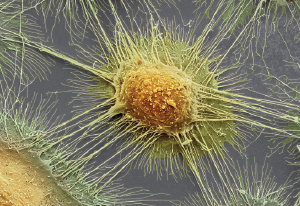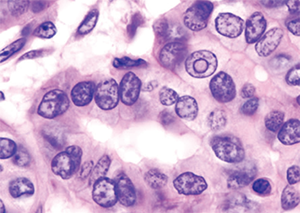Survivors of head and neck cancers are at risk for delayed neurocognitive deficits for at least two years following radiotherapy or chemotherapy

When Should Surveillance Imaging Be Performed After Treatment for Head and Neck Cancer?
The majority of recurrences occur within the first two posttreatment years
Resistance Training During Chemoradiotherapy Safe for Patients with HNSCC
Progressive resistance training is also associated with high patient satisfaction

New Staging System on Horizon for Head and Neck Cancers

Research Highlights from the 2017 TRIO Annual Meeting
Investigators from around the country presented their findings at the 120th Annual Meeting of the Triological Society

Experts Discuss HPV-Positive Head and Neck Cancer
De-intensifying both surgical and radiation treatment can be effective in some patients
Post-Discharge Care Fragmentation Leads to Increased Risks for Patients with HN Cancer
Head and neck cancer patients experiencing care fragmentation are at increased risk of in-hospital mortality within 30 days of readmission

New Research Calls for Sex-Specific Therapies for Thyroid, Head and Neck Cancer

Can Technique Used for Gastrostomy Tube Placement Reduce Risk of Gastrostomy-Site Metastasis in Head and Neck Cancer Patients?
The push technique for PEG placement is associated with a lower incidence of PEG-site metastases when compared to the pull technique

The Role of Checkpoint Inhibitors in the Treatment of Head and Neck Cancer
- « Previous Page
- 1
- …
- 5
- 6
- 7
- 8
- 9
- 10
- Next Page »